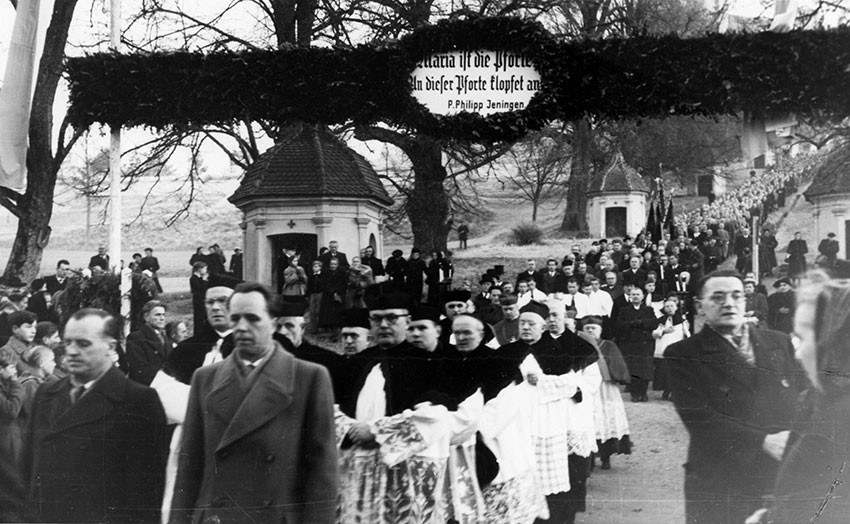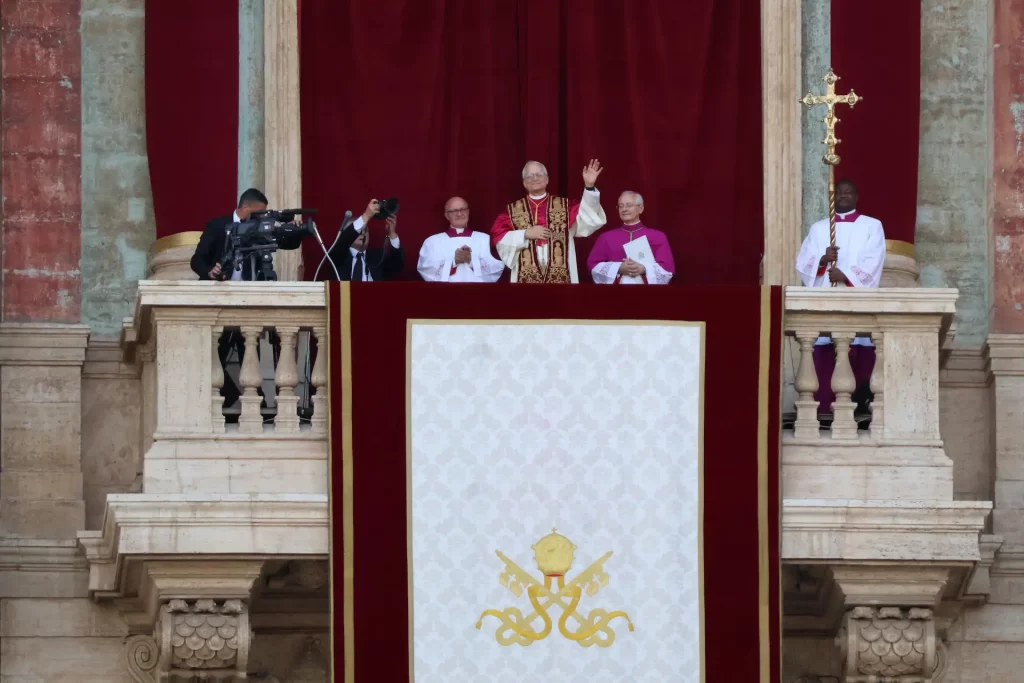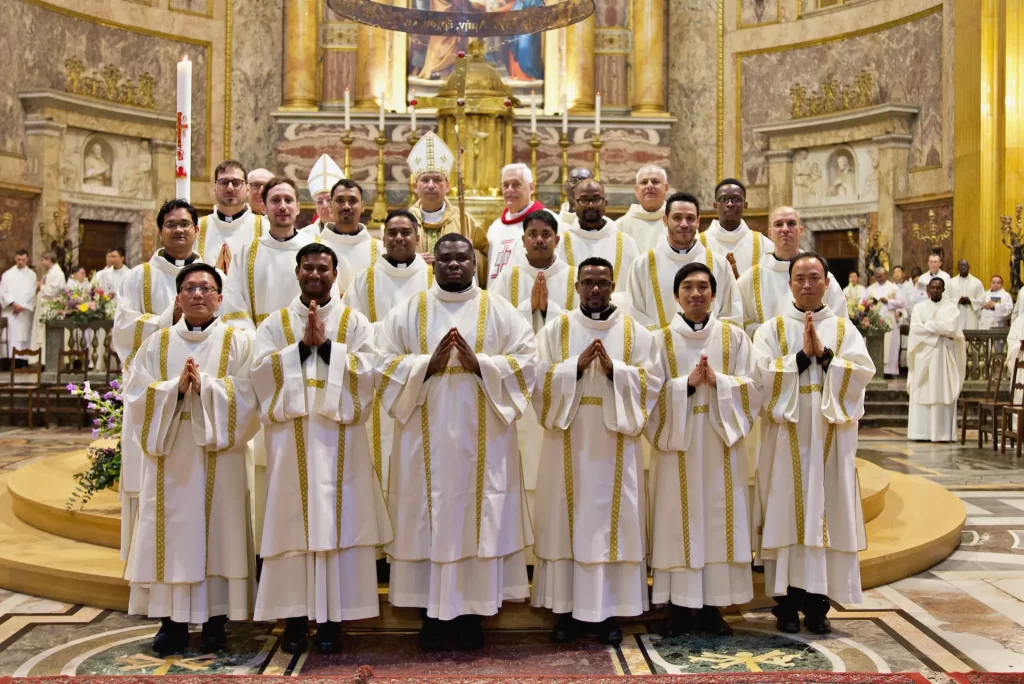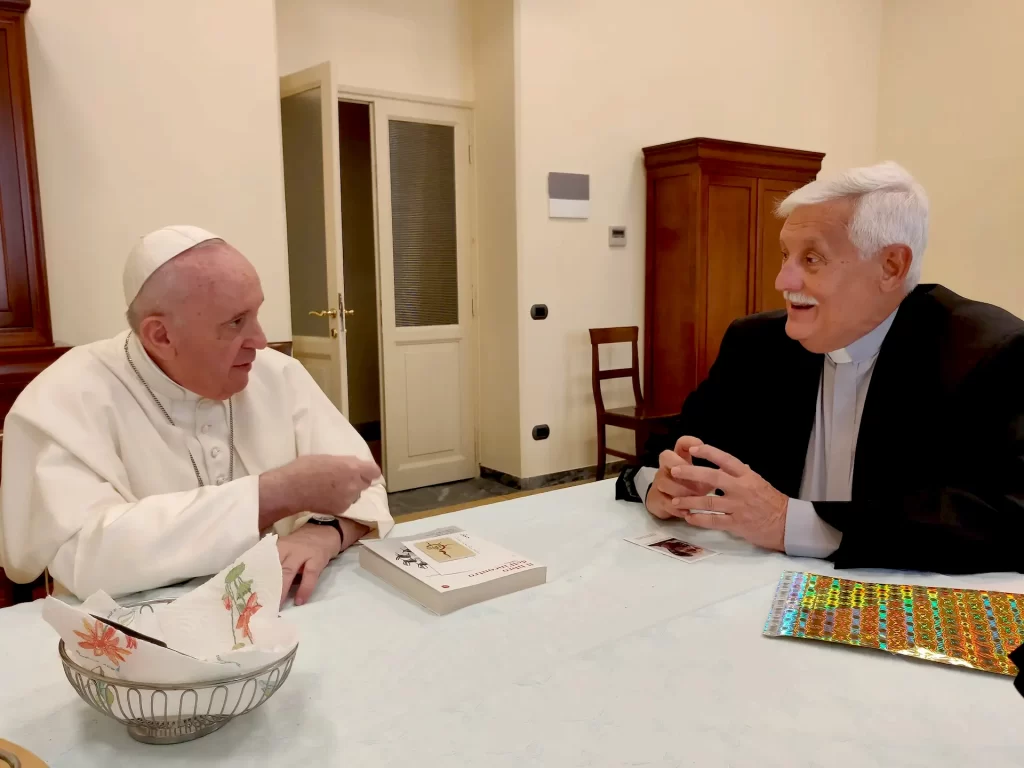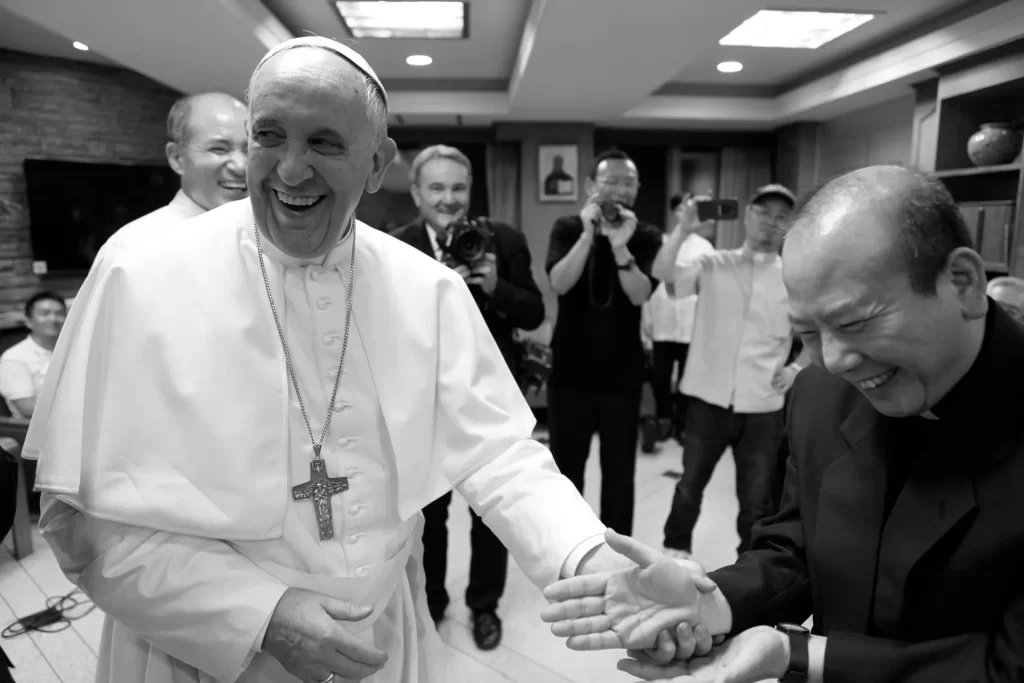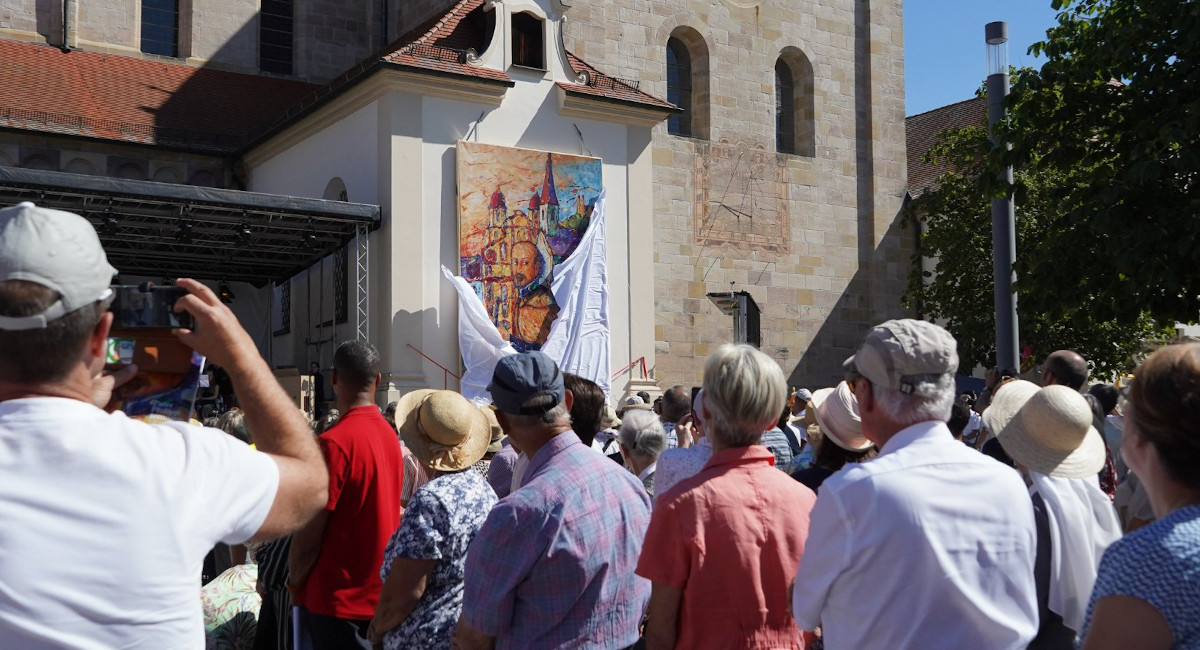
A painting of new Blessed Philipp Jeningen SJ is unveiled during the beatification ceremony | Image from the Diocese of Rottenburg-Stuttgart / Arkadius Guzy
The Society of Jesus rejoices with the beatification of German Jesuit Fr Philipp Jeningen SJ on 16 July at Our Lady of the Basilica of St Vitus in Ellwangen by Cardinal Jean-Claude Hollerich accompanied by Bishop Gebhard Fürst and the other celebrants. He is the second Jesuit to be officially recognised a blessed by the Church this month following the beatification of Sardinian Jesuit Fr Giovanni Antonio Solinas SJ on 2 July.
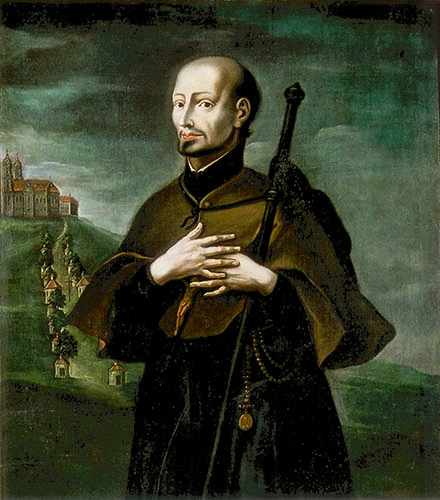
In 1680, Fr Jeningen was sent to Ellwangen, where he was put in charge of the pastoral care of the school and collegiate church. His main task, however, became ministering to the pilgrims on the Schönenberg mountain, who came to pray at the site where the Jesuits had erected a simple wooden cross with a figure of Mary during the Thirty Years’ War. Fr Jeningen was able to build a large baroque church above the small chapel that had been built on the hill. The church attracted many pilgrims and soon became a Marian shrine.
His pastoral work, which was inspired by the Spiritual Exercises, endeared him to the people and earned him the nickname, “the good Father Philip”. He spent his life comforting the afflicted, alleviating their suffering, and standing by their side. He travelled around Ellwangen, his shoes forever without soles, ministering to Catholics that had no pastor of their own. He held missions and gave retreats to priests, and cared especially for soldiers, prisoners, and those condemned to death. He died on 8 February 1704 after falling sick while giving the Spiritual Exercises.
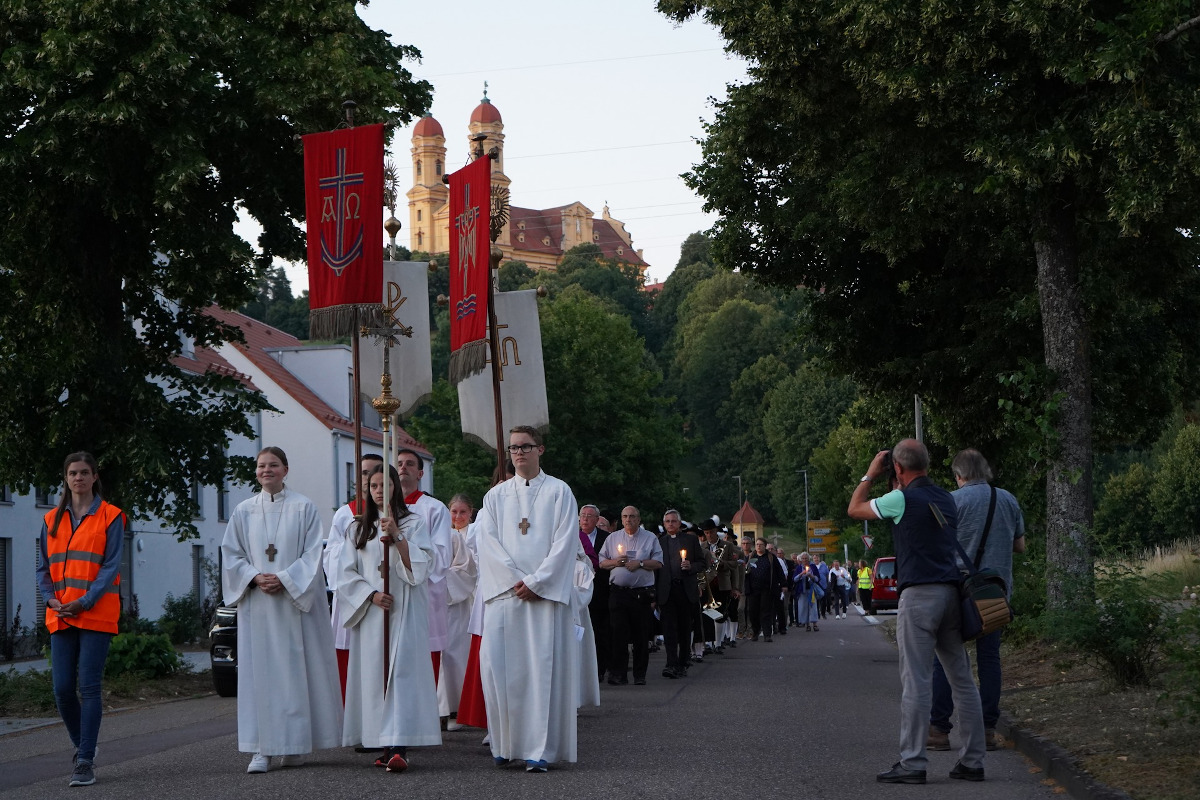
Procession of lights from Schönenberg to the city center of Ellwangen on the even of Fr Philipp Jeningen’s beatification | Image from the Diocese of Rottenburg-Stuttgart / Arkadius Guzy
Moves to beatify him started soon after his death. The so-called “heroic degree of virtue” was established in 1989, and decisive for the Pope’s placet was an “inexplicable healing” from an incurable disease of a man from the diocese of Rottenburg-Stuttgart attributed to the intercessions of Fr Jeningen.
“It is special for us that one of our Jesuit brothers has been granted this honour,” said the Provincial of the Central European Province Fr Bernhard Bürgler SJ. “In the Ignatian Year, in which we remember the conversion of Ignatius 500 years ago, this is a grace for all of us.”
Fr General Arturo Sosa in his message to the whole Society noted: “Although different from today, [Fr Jeningen’s] era too was marked by the deep wounds of war and violence. When he was born, the Thirty Years’ War was in its final stages, and when he died, the War of the Spanish Succession (1701-1714) had just begun…. His beatification shows us that it is through people who dedicate their lives to the Gospel with all their strength, that hope and confidence enter the world.”
Fr General Sosa hopes that the beatification can be an occasion for a renewal of the Society’s life and work starting from the spirit of the Spiritual Exercises. “May the pilgrim Philip Jeningen with his missionary zeal be a model for us at all times wherever we can make the presence of God visible to people and where we can work towards a deeper reconciliation based on justice, faith and solidarity with the poor,” he said.

